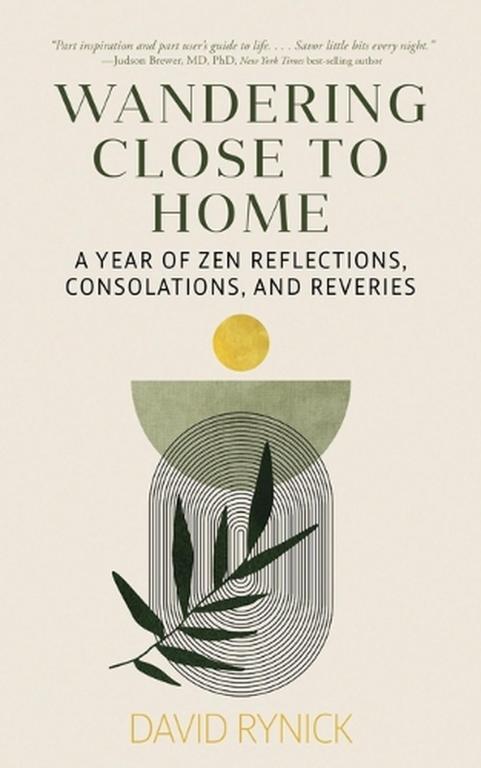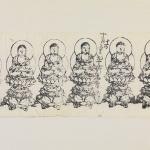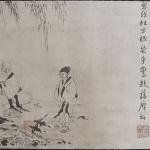
David Rynick
I recall the late 1960s when I found my heart calling me to Zen, that there weren’t a lot of books available. Basically there were the works of the scholar D. T Suzuki, important, in many ways, if in some others a bit misleading. He had an Introduction to Zen Buddhism which was translated into English in 1949. Alan Watts wrote a summary appreciation of Suzuki’s contributions, the Way of Zen in 1957. He in fact exaggerated the shortcomings of his mentor. It may have been the most widely read book on Zen at the time. They both popularized the tradition with an emphasis on insight, but in Suzuki’s case deemphasized practice, and in Watts’ case denigrated practice. So, flawed as far as accurately presenting the Zen way. In addition there was Eugen Herrigel’s 1948 Zen in the Art of Archery. An interesting book, for sure. And very popular as the author forgot to mention he’d been an enthusiastic Nazi a few years before.
And then there was Paul Reps and Nyogen Senzaki’s 1957 Zen Flesh, Zen Bones. A little gem. It became a sort of Bible for me.
And that was kind of it. More perhaps useful and definitely challenging books would soon follow. But books and accurate books were pretty thin on the ground in those days.
Now books on Zen come out every month. It is not possible to keep up with them all. I’m afraid I’m one of the offenders.
And in the thicket sometimes it is hard to make out specific trees for the woods.
So, here I want to draw your attention to a book that has just come out. It’s really good. And it’s worth noticing.
My old friend, companion on the intimate way, and wonderful Zen teacher, David Rynick has just released Wandering Close to Home: A Year of Zen Reflections, Consolations, and Reveries.
His earlier This Truth Never Fails: A Zen Memoir in Four Seasons was a lyrical meditation on the Zen life. It reminded me in many ways of Mary Oliver. If you read it, you probably already love David’s work. If not, you’re in for a treat. That sense of wonder and the inviting writing continues in David’s new book.
David Rynick is a wise and gentle guide on the mysteries of birth and death. And this is so important, he also calls us to our ordinary magical lives in between. David’s deep understanding of Zen permeates this wonderful collection of brief meditations.
I consider this an example of a critical growing literature of Zen in the West as it is becoming native. There is the essential transmission of primary texts, which is now happening in abundance. And following along, a growing collections of commentarial literature. This is also important.
But we are now also experiencing memoirs and reflections from out of this Zen life. Wandering Close to Home is a very good example of this emerging Zen literature, our native Zen literature. The literature of something being owned and owning.
Books like Wandering Close to Home bring the ancient intimate way here, they are rooted in our time and place, they point to the healing of that ancient hurt. But in our language, for our moment.
If you want a sense of that established life written in the idiom of our lives, by a lyrical and wise author, you can’t do a lot better than David Rynick’s meditations.
I highly recommend it.













